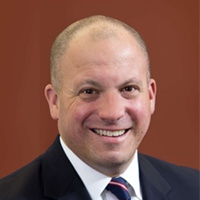South Hamilton RICO Act Lawyer, Massachusetts
Sponsored Law Firm
-
 x
x

Click For More Info:
-
Adam P. Beck, M.D., Esq.
25 Marston St Suite 303 Lawrence, MA 01841» view mapAccident & Injury Law Legal Expertise You Can Rely On
By working with lawyers who are also doctors, clients can benefit from advocates who have a deeper understanding of their physical injuries, medical needs, and prognoses.
800-383-8491
Not enough matches for South Hamilton RICO Act lawyer.
Below are all South Hamilton Criminal lawyers.
Daniel K. Gelb
✓ VERIFIEDCriminal
Daniel K. Gelb is a partner at Gelb & Gelb LLP. He is a member of the bars of the Commonwealth of Massachusetts, the United States District Court for ... (more)
FREE CONSULTATION
CONTACTFREE CONSULTATION
CONTACTFREE CONSULTATION
CONTACTChristine G. DeBernardis
Alimony & Spousal Support, Child Support, Collection, Criminal
Status: In Good Standing
FREE CONSULTATION
CONTACTFREE CONSULTATION
CONTACTRichard C. Chambers
Accident & Injury, Criminal, Divorce & Family Law, Estate
Status: In Good Standing
FREE CONSULTATION
CONTACT Adam Beck Lawrence, MA
Adam Beck Lawrence, MA AboutAdam P. Beck, M.D., Esq.
AboutAdam P. Beck, M.D., Esq. Practice AreasExpertise
Practice AreasExpertise

